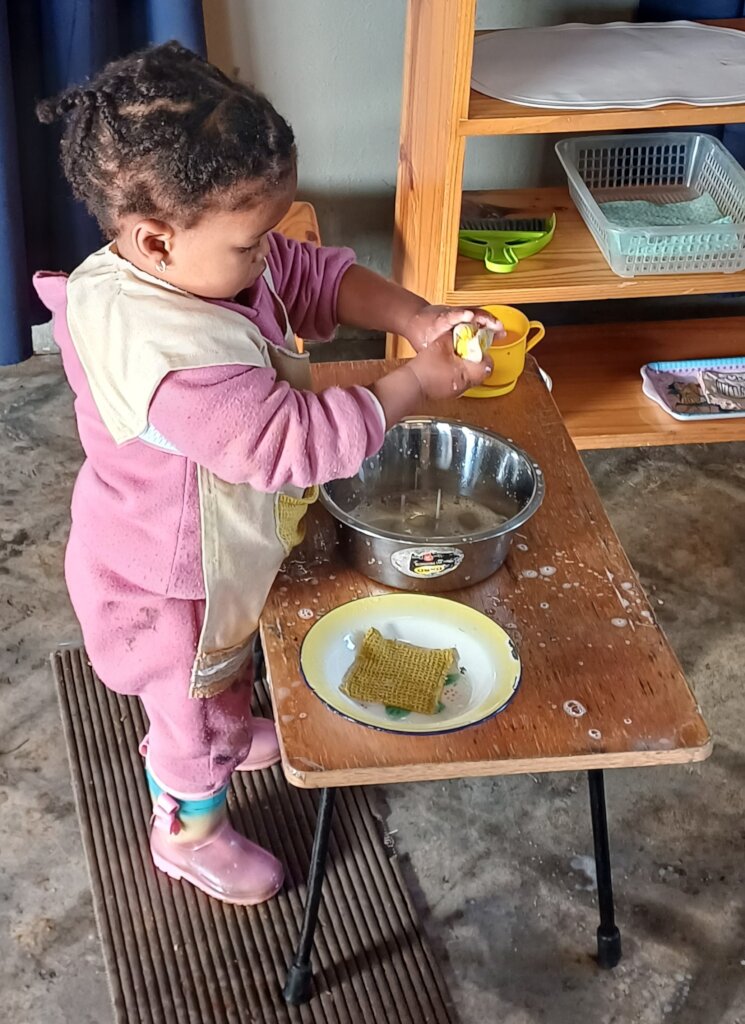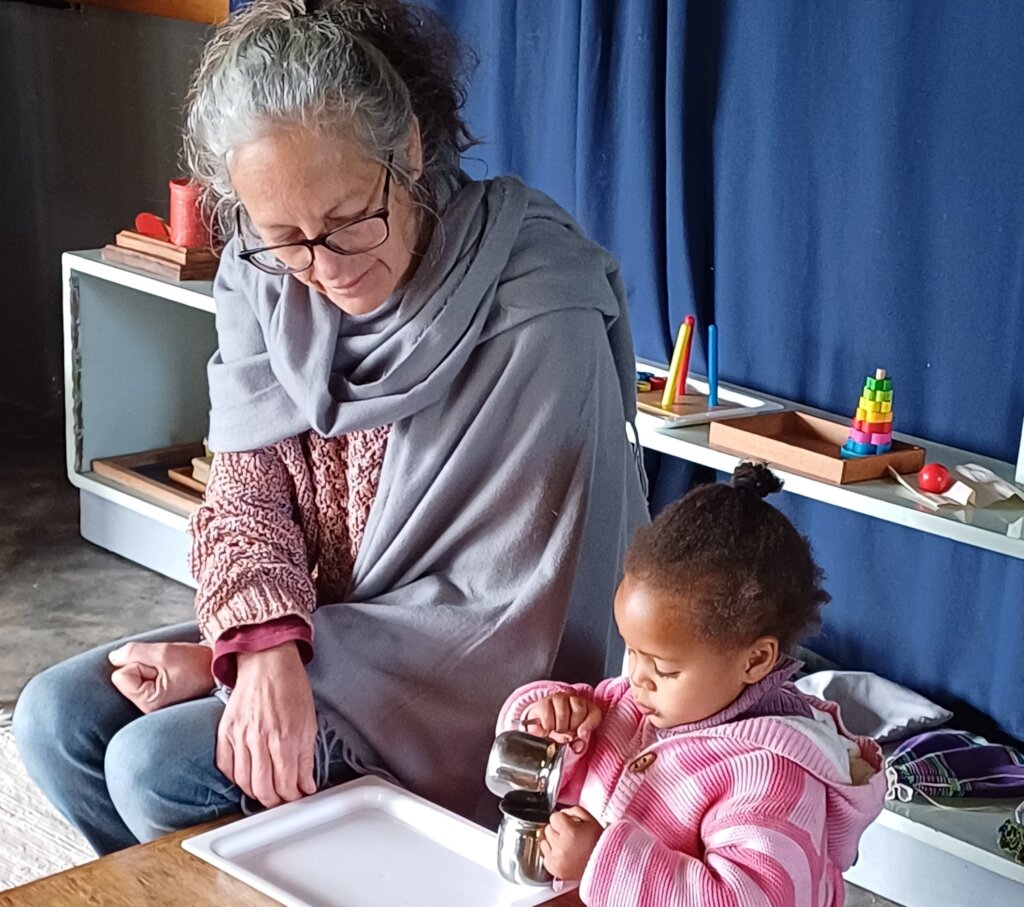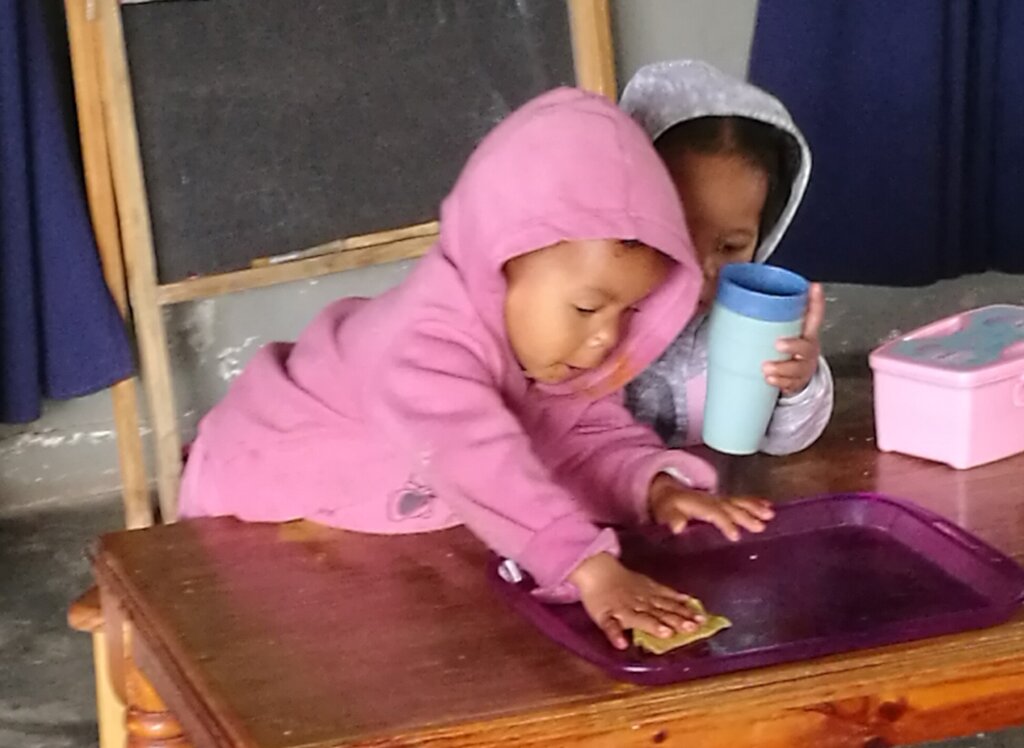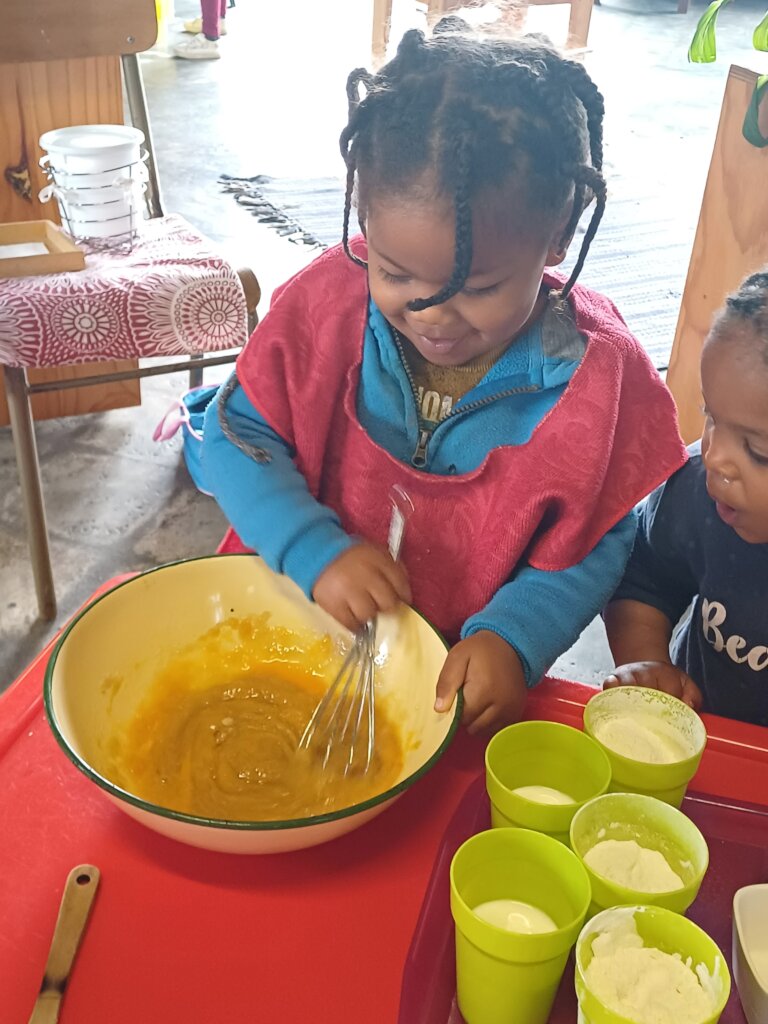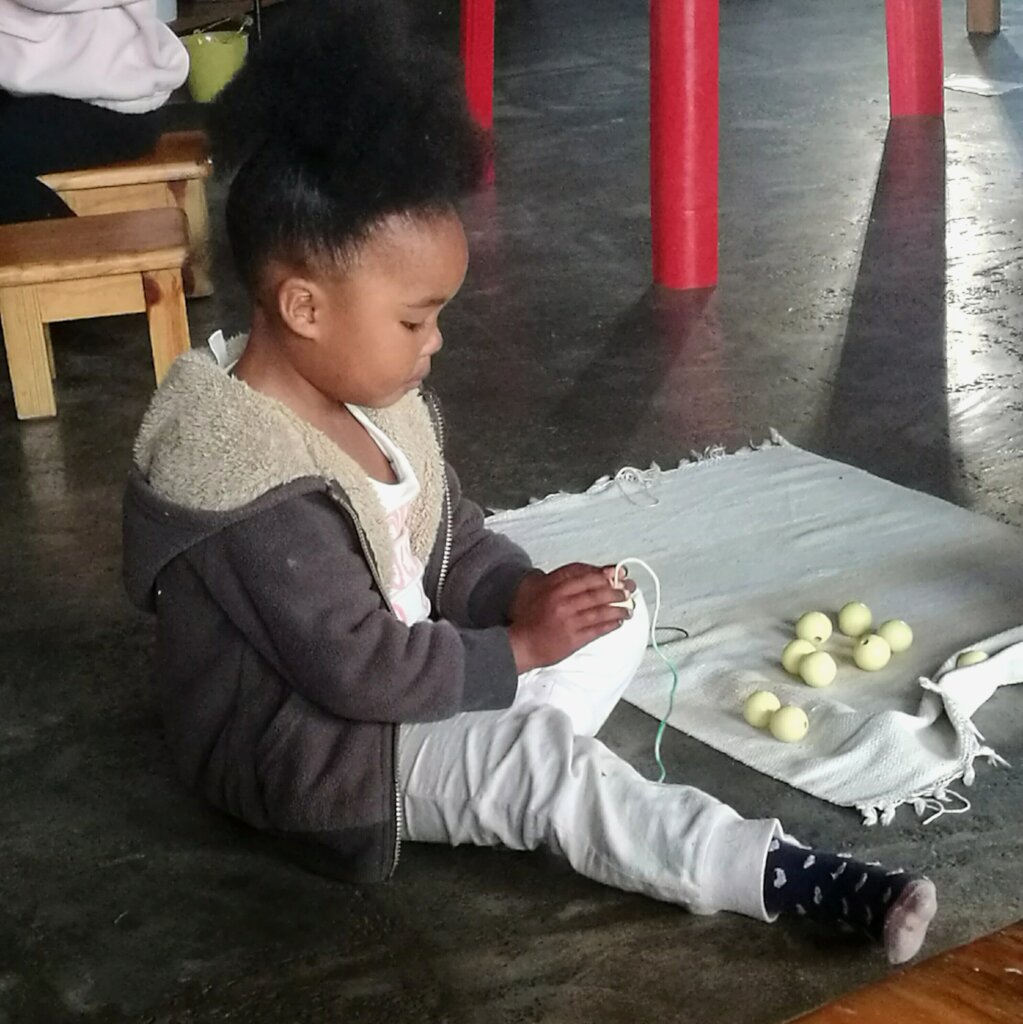By Claire Howie | Owner and Directress of Wellington CASA
In the second half of 2023, after giving the young children the opportunity to learn how to do some things for themselves by themsleves, we witnessed the inner drive of all the children to do as many things as they could for themselves, by themselves. They refused help and bemoaned our interference.
There were many skills such as hand-eye coordination, fine-motor skills, gross-motor skills, balance, cognitive development, and other skills needed for further education, that were developed,practiced and refined during these activities. These activities included toileting independently, dressing, washing hands, faces and feet, carrying furniture and toys, packing their own bags, preparing fruit and vegetables, pouring water when they were thirsty, etc. The older children also engaged in threading, simple sewing, painting, puzzles, and writing activities.
Every day activities. We call them Exercises of Daily Living or Practical Life. All of our children participate in these activities every day, from the youngest to the oldest of the group.
These are the activities that children participate and engage in on a daily basis. The importance at CASA is that they do as much for themselves as they are able too. The younger children may need some collaborative aid in completing a task.The trick is to know when they are able to do more until they are completely able. And to not take over, interfere, correct or change the outcome, to suit our own adult need, when the task is complete.
Why are these independent activities so important?
Besides the use of some important skills such as those listed above, there is a psychological value to these activities too:
"I am showing you how to do this, because I trust that you will be able to do it on your own (one day, if working collaboratively)," is the message received by the child. This trust may give a child the sense of being worthy.
Being encouraged to help with every day chores may allow the child to feel he/she belongs in the space, in the community, in the environment.
The repetition of a task allows the child to succeed, to do it a little bit easier,a little bit better each time. This feeling of one own's success leads to the development of true self-esteem. (An adult's judgement here could jeapordise this, even if it is well-meaning. e.g. Good job! or Well done!)
The child develops self-confidence in his/her own abilities and capability.
The child learns how to do simple every day tasks within his/her own culture. They are developing the skills to ensure the survival of their culture. We call this adaptation.
Too much adult interference could have the opposite effect: the child could become demotivated to do anything for themselves, dependent, have a low self-esteem, lack confidence and feel as if they don't quite fit in or feel inaequate.
Independent tasks and activity is interdependent on the development of these traits above. The more a child feels worthy, that they belong, have a healthy self-esteem and feel confident, the more they are going to want to do. The more they are going to want to learn.
Allowing a child to do as many things for themselves bythemselves is important for the child to develop these qualities. What a gift to the young child.
Project reports on GlobalGiving are posted directly to globalgiving.org by Project Leaders as they are completed, generally every 3-4 months. To protect the integrity of these documents, GlobalGiving does not alter them; therefore you may find some language or formatting issues.
If you donate to this project or have donated to this project, you can receive an email when this project posts a report. You can also subscribe for reports without donating.
